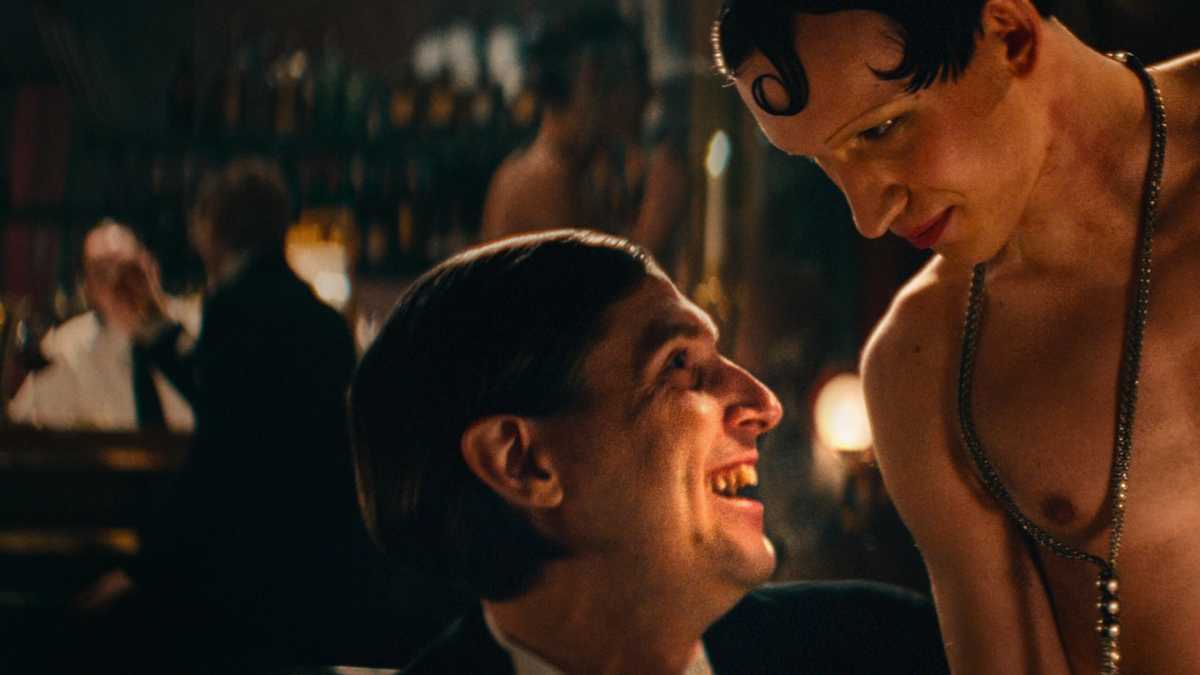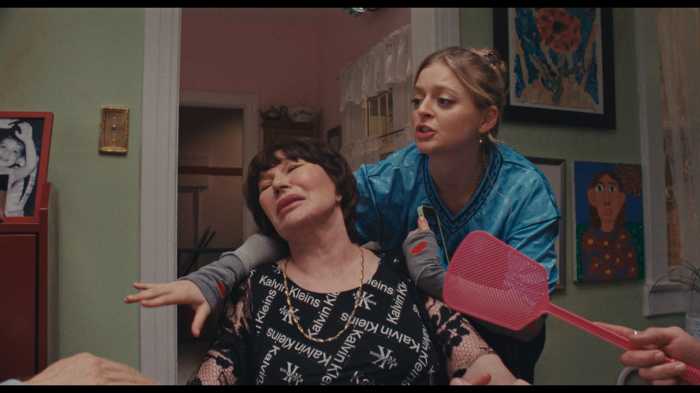Queer director Benjamin Cantu’s Netflix documentary, “Eldorado: Everything the Nazis Hate,” finds happiness in an unlikely place. It’s a film of three trans women taken in early 1930s Germany. They were among the first to be able to receive gender confirmation surgery at gay scientist Magnus Hirschfeld’s institute and clinic, which would be shut down by the Nazis. The images are deceptively casual. The women are smiling and affectionate, obviously enjoying each other’s company, without being effusive. The texture of the film recurs in other photos and movies from the time included in “Eldorado.” It’s pale enough to look slightly faded, a definite product of the past. Yet it seems so much more lively than the more familiar black-and-white footage of 1930s Germany, much of it shot by fascists themselves.
Beginning in the late 1920s and ending with the present-day life of one of its subjects, who has lived to 100, “Eldorado” tells the history of Nazism’s impact on Germany’s LGBTQ community through the stories of a nightclub and the people who attended it. The scarred, pudgy Ernst Rohm was a close associate of Hitler, while barely being in the closet. He led the SA, the precursors to the SS. “Eldorado” places him in opposition to the liberating influence of Hirschfeld. Tennis player Gottfried von Cramm carried on a polyamorous relationship with Jewish actor Mamasse Herbest and Lila von Dobeneck. The Jewish-American Charlotte Charlaoue, a trans woman, lived in Berlin at this time, where she met her partner Toni Ebel, who was also trans.
While it’s not unusual for documentaries to include brief dramatizations of historical events, “Eldorado” takes this to a further extreme. It never pretends to be a narrative film, but its fictionalization of the past goes beyond mere illustration or supplement. It endeavors to bring alive the world of the Eldorado nightclub. Glowing orange lamps light the shot from within, while pastoral scenes of two boys falling in love in the countryside are exaggeratedly bright and green.
The fictional and documentary portions of “Eldorado” were shot by two different teams of cinematographers. Matt Lambert is credited with directing the former, while Cantu helmed the film as a whole. But the combination of these images is a rather disjointed synthesis. The fictional segments aim for a consistent style contrasting with present-day interviews of scholars, but it doesn’t quite succeed at looking cinematic. One wonders how much film footage of queer life in Weimar, Germany remains. While turning Hirschfeld into a character, “Eldorado” never brings up the 1919 silent film “Different From the Others,” which he co-wrote and appeared in. It broke ground by being the first feature to advocate for gay rights. On the other hand, the central importance of cinema to Nazi propaganda also goes unmentioned. This period was hardly as divorced from images as “Eldorado” makes it look, even if scenes inside the nightclub had to be re-created today.
Twenty years ago, this would’ve been a History Channel production, although the amount of time it devotes to trans women feels very contemporary. Its genuine glimpses of the past are the liveliest, most interesting things about it, but its ambition stops at re-creating the 1920s and 1930s. While its dissemination on Netflix is bound to reach audiences with new information about the period, it would be more powerful if it acknowledged how much cinematic history lies behind the film itself. For instance, the Night of the Long Knives, in which Rohm and other members of the SA, were murdered, was dramatized as a lurid, violent interruption of a gay orgy in Luchino Visconti’s 1969 “The Damned.” Even the nightclub scenes pale next to Dominik Graf’s 2021 “Fabian: Going to the Dogs.” As a made-for-TV documentary, it’s fine for what it is, but the format’s limitations become all the more evident because it tries to open them up.
“Eldorado: Everything the Nazis Hate” |Directed by Benjamin Cantu | In English and German with English subtitles | Netflix





































